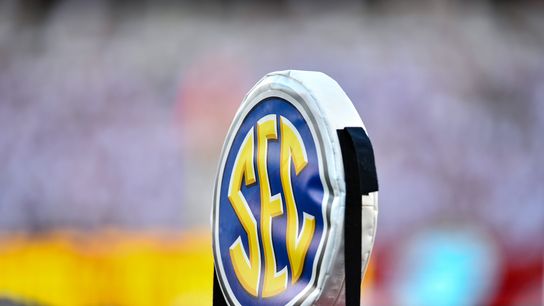The most valuable property in sports television is undoubtedly the NFL. You'd be hard pressed to find a TV executive who bought NFL rights and lived to regret it, no matter the price.
But the best value in the sports television landscape is, without question, the SEC on CBS. For the pennies-on-the-dollar price of $55 million a year, CBS owns the right to broadcast the biggest SEC game each week to a national audience. This arrangement, in place since 2001, has worked wonders for both parties -- CBS turned the SEC into a national conference, while the SEC delivered tens of millions of viewers at a bargain basement price.
For example, in 2019 CBS has broadcast four of the seven college football games to top 9 million viewers -- LSU-Alabama (16.6 million), the SEC Championship (13.7 million), the Iron Bowl (11.4 million), and Notre Dame-Georgia (9.3 million). CBS showed the most-watched game in six of the 15 regular-season Saturdays this fall, despite having a fraction of the inventory of its competitors and while, again, paying an even tinier fraction of the price.
As a comparison, consider that ESPN pays $80 million a year to broadcast the Rose Bowl alone. The Ohio State-Washington Rose Bowl in January drew a hair more viewers than LSU-Alabama in November -- for 25 million extra dollars.
The SEC on CBS contract doesn't expire until 2023, but the entire media industry is monitoring, speculating and gossiping about the SEC's next move as if Nick Saban were deciding between open jobs at Alabama, Texas and Ohio State. Right now, both sides are currently posturing -- while instructing their lawyers to parse every word, every period and every comma in the contract -- about whether or not the contract requires the SEC to give CBS the right of first refusal on any offer one of their competitors might give the conference.
Assuming that clause doesn't exist, and SEC commissioner Greg Sankey believes it doesn't, then the conference can shop itself on the open market. And according to John Ourand of Sports Business Journal, the league will take in a windfall in 2020. In a column predicting major sports TV industry moves for the upcoming year, Ourand writes this:
Fox and NBC will express a lot of interest in CBS’s Saturday afternoon SEC package. CBS will fight to keep it, but ESPN will pick up the rights for ABC for around $300 million per year, a massive increase from the $55 million CBS currently plays. The SEC will ultimately decide it wants more scheduling flexibility by having one partner rather than dividing its rights across two.
At a $245 million increase, that would represent a $17.5 million raise per school per year on top of what the SEC already earns for its existing media rights (which are all owned by ESPN).
Taking Ourand at his speculative word, this would be a massive move for more reasons than one.
-- For starters, would CBS take the 9-figure it presented to the SEC and offer it to another conference, or would essentially cede Saturday afternoons in the fall to ABC/ESPN and FOX? CBS has been in the college football business for decades, so surely the bean counters wouldn't accept its Saturday afternoon traffic plummeting from six, eight, 10 million viewers a week to zero.
-- Speaking of FOX, the network has quickly carved itself a niche by marketing to Big Ten and Big 12 fans sick of a perceived pro-SEC bias on the Worldwide Leader. Expect that effort to increase tenfold should the SEC put all its eggs in the ESPN basket.
-- And about that (real or perceived) bias. The SEC has been treated like a spoiled only child for two decades straight now by CBS, and it's not like CBS would ratchet any of that down when the SEC becomes a free agent. The SEC wouldn't kiss that preferential treatment goodbye without assurances that ESPN would boost its ego in addition to its bank account. This is a conference that markets itself by saying it simply plays a bigger, better, more important brand of football than any of its peers.
So, the SEC wouldn't send its most prized possession -- the TV rights to LSU-Alabama, the Iron Bowl, the Florida-Georgia game, the SEC Championship, et all -- to a new school just to be told to pick a seat like every other student. No, the SEC would want something bigger, something better. It would want assurances that the SEC on ABC would be more important than the Big Ten on ABC or the ACC on ABC. The league would want its games to feel more like ESPN's presentation of Monday Night Football than, say, NC State at Clemson.
-- Even if that's not true, if executives in Bristol and Birmingham swear up and down it's not true, fans from the other conferences would feel like it's true.
-- And if that all comes to pass, how would the other Power 5 conference react if ESPN starts to treat them like the Power 4 and the More Powerful 1?
